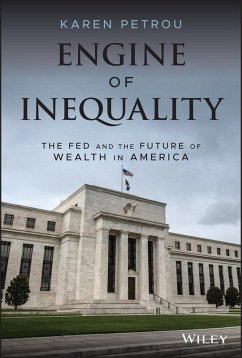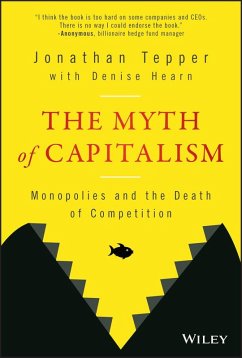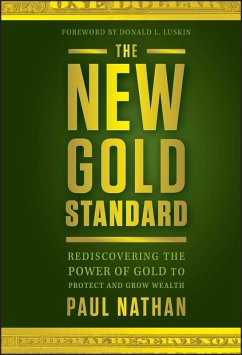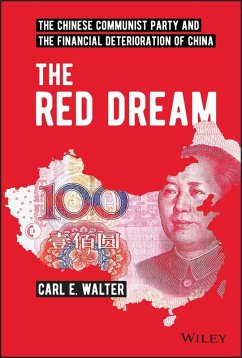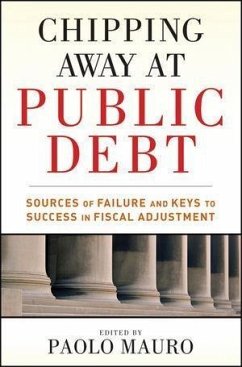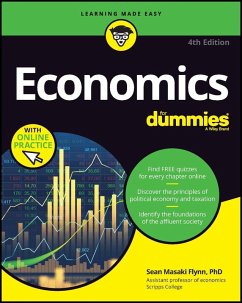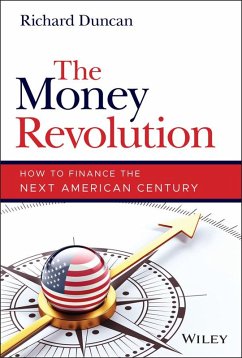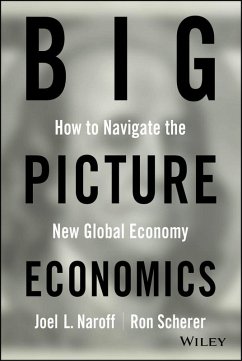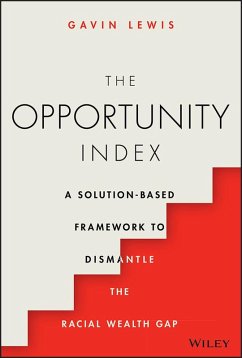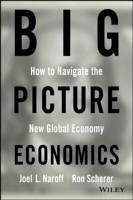
Big Picture Economics (eBook, PDF)
How to Navigate the New Global Economy

PAYBACK Punkte
0 °P sammeln!
Navigate the economy with this insightful new book The world is awash with economic information. Governments release reports. Pundits give their interpretation on television. And the stock market may go its own way, confusing everyone. How can you better understand what it means for you? Big Picture Economics, a new book by award-winning columnist and futurist Joel Naroff and veteran journalist Ron Scherer, says the thread that ties everything together is "context." The authors show how consumers, business, the Federal Reserve, and government take into account what's going on around them to ma...
Navigate the economy with this insightful new book The world is awash with economic information. Governments release reports. Pundits give their interpretation on television. And the stock market may go its own way, confusing everyone. How can you better understand what it means for you? Big Picture Economics, a new book by award-winning columnist and futurist Joel Naroff and veteran journalist Ron Scherer, says the thread that ties everything together is "context." The authors show how consumers, business, the Federal Reserve, and government take into account what's going on around them to make critical decisions like buying new products, building new factories, changing interest rates, or setting budget goals. The book provides a clear roadmap to understanding the whole story behind the global economy. Big Picture Economics helps readers understand how context impacts decisions and decision makers. - The Federal Reserve and Congress in formulating economic policy - Consumers in a shopper nation and what makes us buy or not buy - Corporations making decisions on whether to build new factories and buy other companies - The federal budget that must deal with complex issues, including the reduction of health care spending - A simple test for tax cuts or increases: will they help the economy grow? - Where to produce and where to sell in a global economy that is more like a Mobius strip than a flat world - International events that can ripple through the economy and ultimately affect workers in the Midwest - Technology, such as intelligent drones to wearable computers, are changing the future Experts laud the book for its perceptive insights: "It all sounds like common sense, but it is actually based on a close, expert reading of economic history and what that history implies for the future. Read this book to become a more educated judge of economic policy." --Robert Moffitt, Krieger-Eisenhower Professor of Economics at Johns Hopkins University "Naroff and Scherer show how seemingly unrelated things like an upgrade of the Panama Canal, a Tex-Mex restaurant's menu change, or how many Americans are overweight turn out to be intricately linked to our daily experiences. What brings the book to life is the authors' focus on these hidden interconnections." --Brendan Conway, blogger and columnist, Barron's
Dieser Download kann aus rechtlichen Gründen nur mit Rechnungsadresse in A, B, BG, CY, CZ, D, DK, EW, E, FIN, F, GR, HR, H, IRL, I, LT, L, LR, M, NL, PL, P, R, S, SLO, SK ausgeliefert werden.




